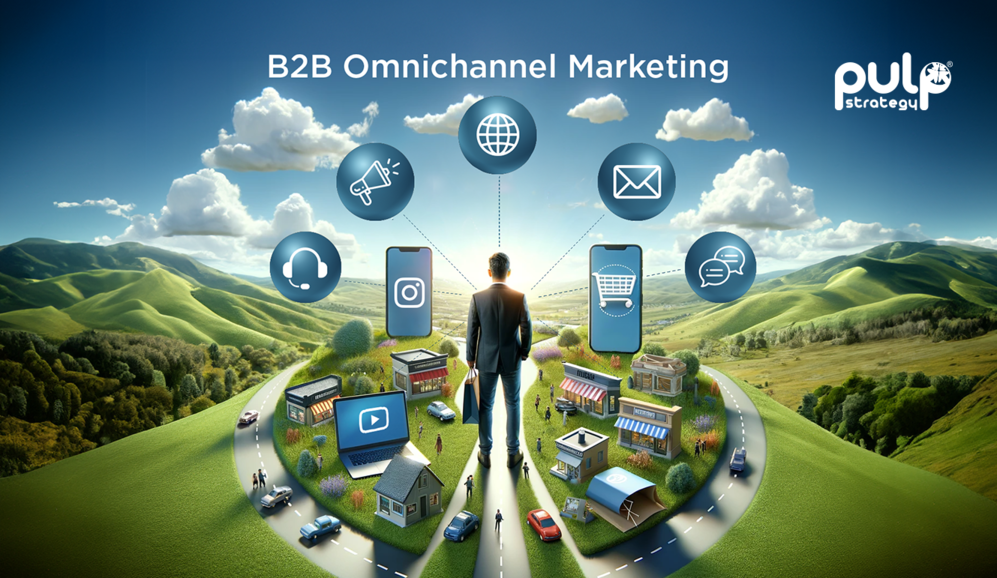"Honesty is the best policy."
This phrase, often cited as a moral lesson, has become a business imperative in today's hyper-connected digital world. Consumers are no longer passive recipients of brand messaging—they are informed, skeptical, and demand accountability. Ethical marketing is no longer a nice-to-have; it is a competitive advantage that can build brand trust, drive loyalty, and positively impact the bottom line.
Brands that prioritize transparency, authenticity, and responsible marketing will not only differentiate themselves but also create sustainable business value. In contrast, misleading marketing strategies may offer short-term wins but can ultimately erode credibility and lead to long-term losses.
In this article, we will explore why marketing ethics must be a core component of a brand’s strategy, how brand authenticity influences consumer behavior, and what CMOs can do to embed ethical principles into their marketing operations.

Why CMOs Must Prioritize Ethical Marketing
The Erosion of Trust and the Demand for Transparency
Consumer trust has been steadily declining due to misleading advertisements, data privacy breaches, greenwashing, and influencer marketing scandals. Ethical issues in marketing—such as deceptive pricing, hidden terms, and exaggerated product claims—have created a more cautious, discerning audience.
According to Edelman’s 2023 Trust Barometer, 81% of consumers say trust is a dealbreaker when choosing a brand. This shift has placed ethical marketing at the forefront of strategic discussions for CMOs who are now expected to align marketing with values, not just sales goals.
Successful brands are now embracing transparent storytelling, ethical data usage, and responsible content strategies to build credibility. Consumers are no longer just looking for quality products—they want to understand a brand’s mission, values, and long-term impact.
CMO Takeaway :
- Transparency builds trust – Clear, honest communication strengthens brand credibility.
- Ethical marketing is a differentiator – Integrity helps brands stand out in competitive industries.
- Consumers expect accountability – Brands that fail to meet ethical expectations risk long-term reputational damage.
Addressing Ethical Issues in Marketing
The Ethical Traps That Undermine Brand Credibility
CMOs must recognize and proactively address ethical issues in marketing to avoid reputational risks. Some of the most common marketing missteps include:
- Greenwashing – Making unsubstantiated sustainability claims without real action.
- Manipulative pricing tactics – Hidden fees, misleading discounts, or false urgency tactics.
- Invasive data collection – Tracking consumers without clear consent or transparency.
- Influencer deception – Misleading product endorsements or lack of disclosure in paid partnerships.
Brands that continue to engage in these practices face regulatory scrutiny, consumer backlash, and declining customer loyalty. Instead, ethical marketing requires full transparency, fair pricing, and responsible communication across all channels.
- Eliminate deceptive practices – Honesty fosters long-term customer loyalty.
- Enhance consumer protection – Pricing, promotions, and claims should be clear and accurate.
- Strengthen internal compliance – Train marketing teams to ensure adherence to ethical standards.

The Power of Brand Authenticity
Why Authenticity Matters in Ethical Marketing
In an era where consumers are bombarded with thousands of marketing messages daily, authenticity has become a key differentiator. Brands that showcase genuine storytelling, customer advocacy, and real-world impact resonate more with their audiences.
Authenticity is not just about tone and visuals—it extends to product quality, social responsibility, and brand messaging consistency. Consumers today seek brands that are honest, relatable, and mission-driven.
Best Practices for Building Brand Authenticity
- Showcase Real Stories – Feature real customers, employees, and user-generated content instead of staged promotions.
- Admit Mistakes – Brands that own up to their missteps and take corrective action earn greater trust.
- Ensure Consistency Across Channels – Messaging, pricing, and product promises must remain uniform across platforms.
Case in Focus: Michelin’s Trails of India – A Community-Driven Success Michelin’s Trails of India was more than just a campaign—it was a digital ecosystem designed to engage India’s passionate motorcycling community. By leveraging real user stories and user-generated content, Michelin created an exclusive platform for high-end motorcycle owners and cycling enthusiasts. Riders shared personal journeys, expert tips, and road-trip experiences, fostering an authentic, brand-led community. This approach not only strengthened Michelin’s credibility but also reduced its reliance on third-party platforms, boosting organic engagement and customer loyalty. The campaign’s success was evident through 8 major industry awards, cementing its place as a pioneering model for owned media and brand advocacy.
CMO Takeaway
- Authenticity drives brand advocacy – Consumers reward brands that are transparent and honest.
- Consistency is key – Mixed messaging creates confusion and erodes trust.
- Avoid performative ethics – Consumers can detect inauthentic attempts to appear socially responsible.
Ethical Data Practices and Consumer Privacy
Ethical Data Usage as a Trust-Building Strategy
Consumers are increasingly concerned about how brands collect, store, and use their data. With regulations like GDPR and CCPA, brands that prioritize ethical data practices gain a competitive advantage by fostering consumer confidence and regulatory compliance.
Instead of relying on third-party data tracking, many brands are now investing in first-party data strategies, such as:
- Permission-based marketing – Gaining explicit consent before collecting or using consumer data.
- AI-powered personalization – Using ethically sourced data to create personalized experiences without invading privacy.
- Owned media ecosystems – Leveraging brand-controlled platforms to reduce reliance on external algorithms and data intermediaries.
CMO Takeaway
- Respect consumer privacy – Ethical data practices build long-term trust.
- First-party data is the future – Move away from third-party tracking in favor of direct consumer relationships.
- Invest in transparency – Clearly communicate how data is collected, stored, and used.
The Future of Ethical Marketing and Brand Value
The Shift Toward Sustainable, Value-Driven Marketing
As consumer awareness grows, brands must integrate ethics into their business DNA. Ethical marketing is not just about avoiding deceptive practices—it’s about actively contributing to a better marketplace.
Companies that succeed in ethical marketing focus on:
- Sustainability – Environmentally friendly products and transparent supply chains.
- Social impact – Aligning with meaningful causes and responsible business practices.
- Customer-first experiences – Prioritizing honesty, fairness, and value-driven communication.
As marketing ethics become a key factor in purchase decisions, brands that embrace ethical strategies will see higher engagement, stronger loyalty, and increased customer lifetime value.
CMO Takeaway
- Ethical marketing is not a trend—it’s the new standard.
- Consumers expect brands to take responsibility for their messaging and impact.
- Transparency, integrity, and purpose-driven marketing will define the next era of brand success.
Final Thoughts: Why Ethical Marketing is a Competitive Advantage
Ethical marketing is not just a compliance measure—it is a growth strategy. In an era where brand trust defines consumer relationships, CMOs must go beyond traditional marketing approaches to embed ethics, transparency, and authenticity into their brand DNA.
By prioritizing marketing ethics, consumer privacy, and responsible storytelling, brands can future-proof their reputation, drive long-term customer loyalty, and create sustainable business value.
For CMOs, the choice is clear: short-term wins through misleading tactics, or long-term success built on trust, integrity, and ethical leadership.
The brands that embrace ethical marketing today will be the ones that thrive tomorrow.









